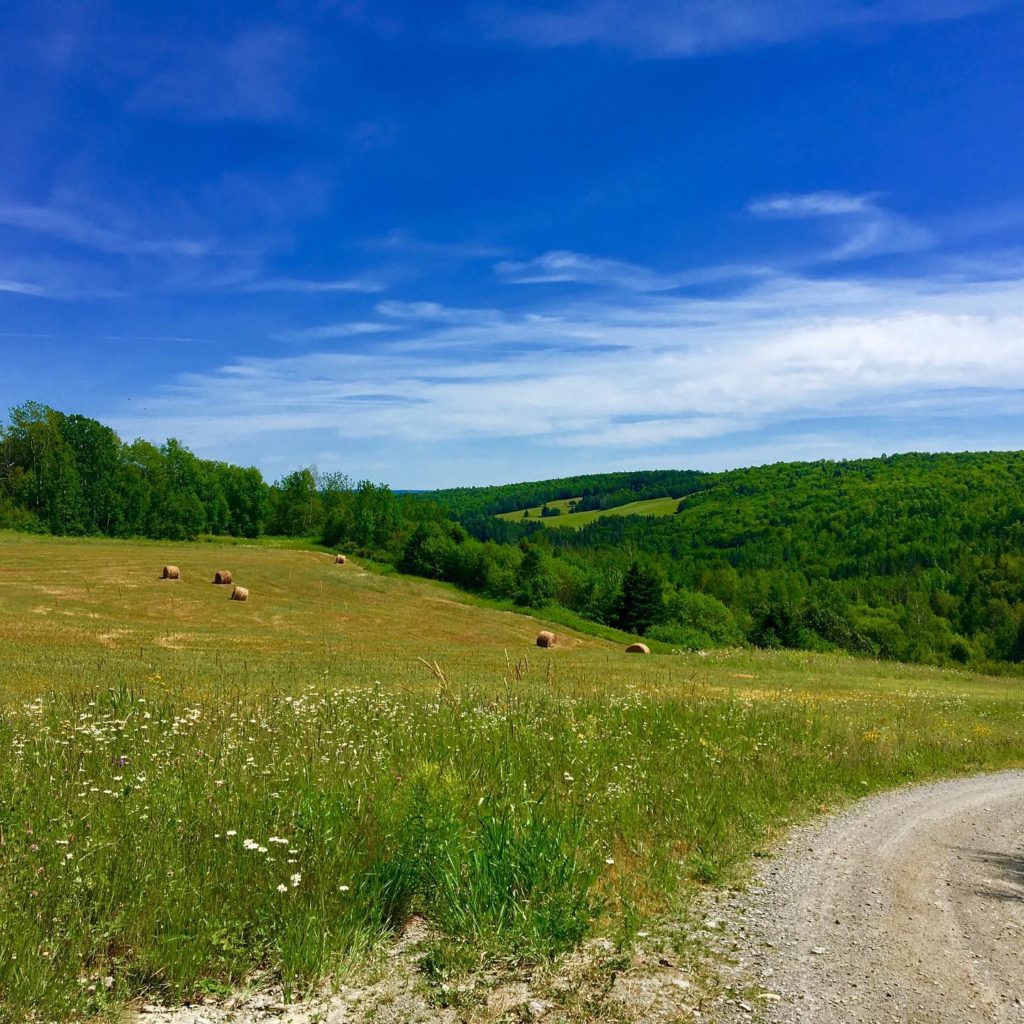Why do I choose to live in rural northern Maine?

Even after living close to four decades on Rusty Metal Farm, my high school friends will still ask me why I choose to remain in — as one puts in — in the middle of oblivion.
It’s a fair question. And every now and then I do ask myself why I choose to live in rural northern Maine.
As I mentioned in a recent column, northern Maine is a very rural portion of a very rural state. It lacks many of the offerings of big city life like where I grew up in Portland, Oregon. I will admit to getting a tad cranky from time to time when that lack directly impacts my plans.
Flying anywhere means first taking a three- to four-hour drive to the nearest major airport in either Bangor, Maine, or Quebec City in Canada. I know — how international is that?
And those drive times don’t take into account the parts of the year when snowstorms can add hours or even an extra overnight to an airport trip.
I will be honest. When I do travel to other cities it’s often to experience things I simply can’t here in the north.
For one thing, there is a certain lack of demographic diversity here. According to the most recent data from the United States Census Bureau, 94.6 percent of Maine’s population is white. In northern Maine it is just slightly higher at 95 percent.
So I enjoy traveling to parts of Maine where newcomers from a variety of locations around the world have started businesses, restaurants and galleries that showcase their cultures. For a bigger hit of diversity I’ll head to Boston, New York City, Chicago, Paris or my hometown out in Portland, Oregon.
But after a week or two in any of those locations, I’m ready to come home to Rusty Metal Farm.
Why is that?
Simply put, it’s home. And for me, home is truly where my heart is and why I choose to live in rural Maine.
In a way, for me living on Rusty Metal Farm is sort of like being on vacation all year.
Pick a season and I can walk out my front door and have something fun to do in my backyard — all 170 acres of it. Far more when you add in the land adjacent property holders allow me to access.
Spring through fall I can hike, walk tiny farm dog Chiclet, ride my mountain bike or gravel bike over miles of trails and dirt roads.
When the snow comes and my world goes from forested green to snowy white, I pull out the snowshoes or cross country skis and cover those same trails and roads. Often with Chiclet at my side — or tucked in my jacket.
Speaking of Chiclet, she has room to romp and answer any and all calls of nature — no poop bags required.
Living in rural Maine means the freedom to have my own chickens and beehives without fear of bothering my neighbors — the closest ones of which are about a quarter mile up the dirt road.
It’s a bit like stepping back in time as rural Maine is a place where everyone pretty much knows or is related to everyone else and is ready to pitch in and lend a hand when needed. Even if you have not had occasion to talk to each other for months.
It’s the place where one call left on the local plumber’s answering machine for a non-emergency water issue is all it takes for him to swing by the next day and fix it — despite the fact I was not home. Yep – he knows to let himself in and trusts me to pay the bill when it comes in the mail.
It’s where I know the farmers who raise much of the meat and poultry I eat and the vegetables I buy in the summer.
It’s where a snowmobile club or school group’s chicken barbecue supper is a really big deal and you’d better buy your tickets ahead of time because they always sell out early.
In short, corny as it sounds, it’s that sense of community that keeps bringing me back and living here in rural northern Maine.
It may be the middle of oblivion, but that’s good enough for me.
